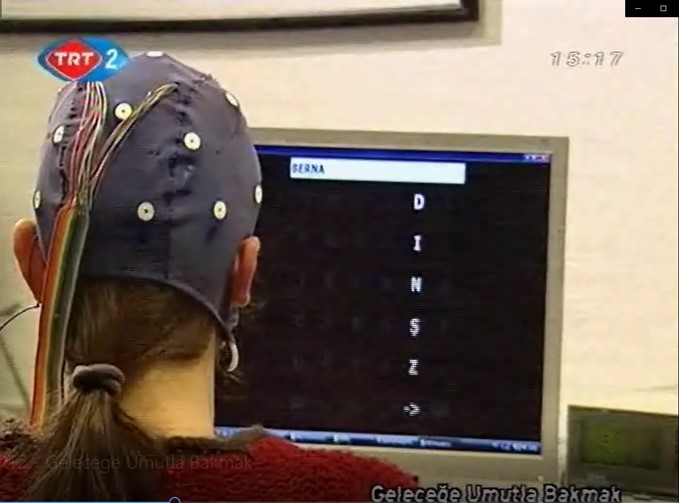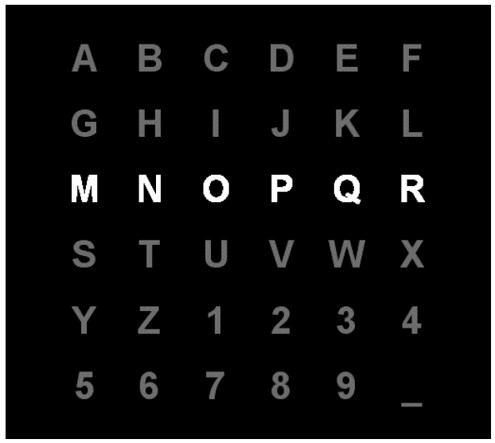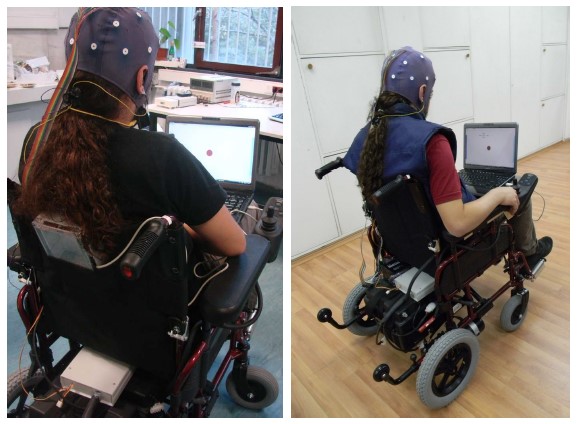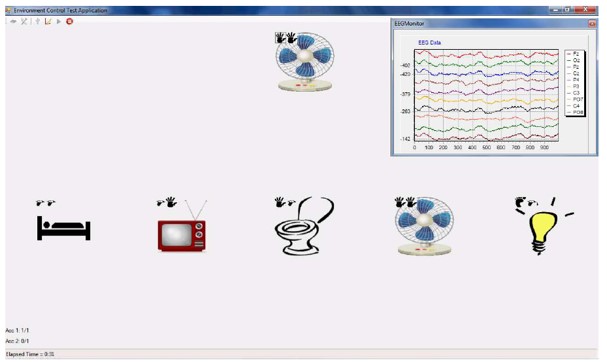Home (BCI)
For patients suffering from degenerative diseases, damage in the motor neural pathways results in communication loss. Brain-computer interfaces use brain activity measurement systems, signal processing methods, and classification techniques to establish new communication pathways. METU BERG explored the Spelling Paradigm (P300 Speller) application that enables patients to express their thoughts by spelling the words displayed on a computer screen. For this purpose, a portable ten-channel system was realized, signal processing methods were developed and machine learning algorithms were applied. EEG data were acquired during a visual stimuli period. Advanced signal processing algorithms and classification methods were applied to the EEG data to predict the characters of the word the subject was thinking of.
In another study, a BCI system based on motor imagination was realized. Based on EEG data, movement intentions were classified according to the corresponding limbs. Two 2-class BCI applications were developed: a ping pong-like game and a wheelchair application. Fast and accurate classification algorithms were developed for both of these applications. To evaluate the performance of the algorithms, the BCI Competition IV-dataset IIb was investigated. The methodologies have the 4th rank among the participants of the competition.
In another BCI study, METU BERG explored the use of sensorimotor rhythms (SMR) generated during motor imagery which are converted to control signals for interaction with the outside world. Five different motor imagery tasks were studied (imagination of tongue movement, the imagination of left-hand movements, the imagination of right-hand movements, imagination of left-foot movements, and imagination of right-foot movements). Several signal processing techniques were employed to classify different motor imagery tasks in EEG signals.

BCI for P300 Speller experiments



